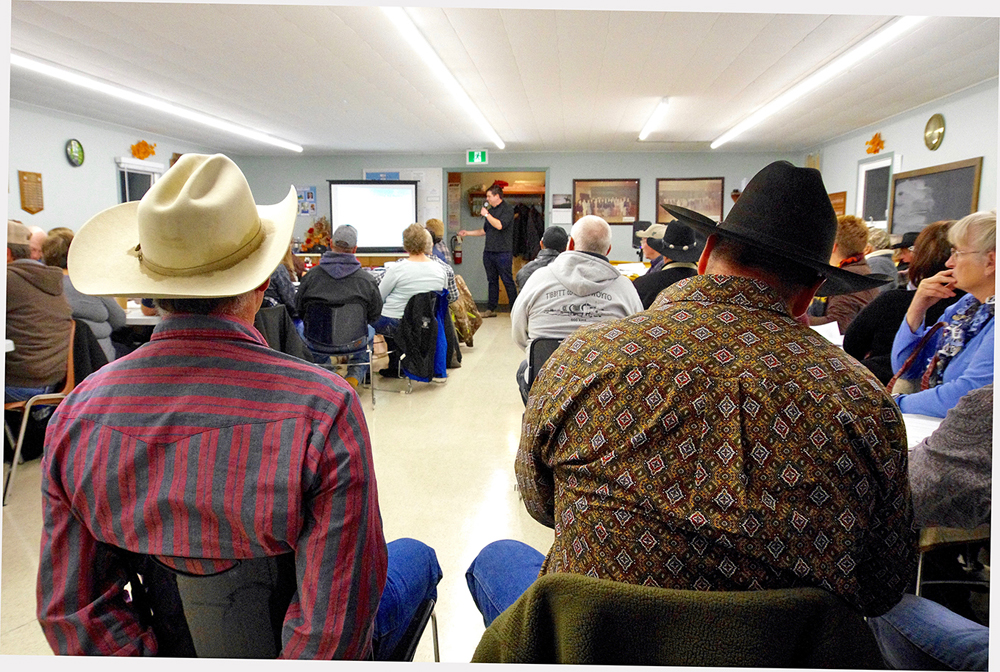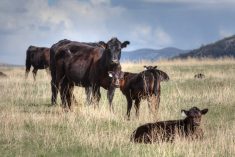Manitoba is about to hold its first auctions for Crown land leases later this month — but bidders still have no clear idea of what they’re getting themselves into.
They’re bidding under a new auction system that eliminates the long-standing ‘points’ process. It also will have a 15-year limit, as opposed to the old 50-year leases, among other changes, including a move to “market rates” that will increase costs for ranchers and an end to “unit transfers” that allowed them to sell leases along with the rest of their operation.
Read Also

KAP flags risky trade for Manitoba farmers
Tariffs, market access uncertainty, trade diversification and export infrastructure top the agenda at Keystone Agricultural Producers (KAP) annual meeting.
It’s the culmination of a process that began in late 2018, when the province finalized changes to the Crown Lands Act. Initially the industry response was reserved, until the long-awaited regulations were released early this fall.
- Read more: District producers back step on AUM cap
Producer outrage has since brought the future of those regulations into question, although the province intends to go ahead with auctions as planned. Ranchers argue that the shorter terms, higher rent and lack of unit transfers lower long-term certainty and put the future of their ranches at risk.
Why it matters: The first forage and grazing Crown land auctions will start in late November, but ranchers worry that the regulatory landscape is far from settled and that new leaseholders might be forced to enter the agreement on faith, rather than fact.
Former agriculture minister Ralph Eichler (now the minister of economic development and training) promised a first right of renewal for legacy leases within a week of the program’s rollout, in light of producer anger. That change requires the province to reopen regulations.
Ranchers now say they are worried that new leaseholders this fall will be entering agreements without knowing the details of the final regulations.

Any regulatory change will come with at least a 45-day consultation period, they note, and the province has yet to put forward any draft regulations to start that process.
“It all depends on what happens in that 45 days,” rancher Mark Good, said. “They may not give us that (renewal). It’s not a for sure thing.”
Good farms in both Alonsa and Spence Lake and owes about 35 per cent of his operation to Crown land leases. He is also a new district director with the Manitoba Beef Producers (MBP).
“They still, obviously, don’t really know what they’re doing yet,” another rancher, Karla Crandall said. “They still haven’t come out with a solid, set plan on what they’re doing, so it’s really difficult to consult on that if you don’t know what the parameters are. Now, I think they’re hearing what we’re concerned about. I hope they’re listening. I hope they care enough about our families, about our ranches, about the land and about our communities.”
Thus far, the province has only committed to renewal on legacy leases, which would allow producers to roll lease agreements into another term without having to compete for the parcel every 15 years. That change would not touch new leases allocated this year, which the province previously maintained would operate under the regulations currently set out.
The province maintains that it consulted extensively with industry while developing the current regulations.
Crown lands staff at the Ste. Rose du Lac MBP district meeting this month noted that they, themselves, organized meetings during regulation development, but had a difficult time getting ranchers to attend at the time.
Agriculture and Resource Development Minister Blaine Pedersen did not respond to requests for an interview.
A statement from his office said there is no update on the province’s timeline for the next round of regulatory change.
Ranchers at the Ste. Rose du Lac meeting were told that more details would hopefully be released in the new year.
Crown lands staff confirmed that the first right of renewal on legacy leases was incoming, but warned that there is little context on what that process will look like.
Opposition weighs in
Provincial NDP Leader Wab Kinew argued that local producers have been expressing their concerns to the government, but have not been properly listened to.
“I’m sure the government is going to keep trying to say that it consults, but we’ll keep pointing out it’s not a meaningful consultation if you don’t listen to what the people who you’re actually sitting down with are telling you and, in this case, folks are saying, make it easier for young producers to enter, make sure that we can still keep the family farm going, and here are the specific steps,” he said.

The NDP leader attended the MBP district meeting in Ste. Rose du Lac and noted specific concerns with unit transfers, universal renewals, and certainty over generational farms.
“I heard a ton tonight that I think is very reasonable and that the government would do well to listen to,” he noted.
The promised first right of renewal did little to cool producer anger, and both ranchers and MBP are still pushing hard for changes.
Dakota Sorensen, 25, of Eddystone argued that a 15-year term did little to help his fellow young producers, although young producers were among the province’s main rationale for shortening the term. The province argues a shorter term will keep more Crown lands in rotation, and thus give young producers more chances to compete for them. Sorensen, however, argues that a 15-year term is untenable for a young producer to acquire financing, an open auction puts those young producers at a disadvantage to older, more financially established farmers, and that the increased rent further increases the financial strain.
“You’ve put a cap on young farmers,” he told Crown lands staff during an MBP district meeting in early November. “The only way you’re getting into it is if your parents were.”
Uncertainty factor
Producers are now pushing hard for that first right of renewal to be extended to all leases, existing and new.
Ranchers are also pushing the province to reinstate unit transfers. Current regulations allow transfers only between direct family. More distant family such as nieces or nephews are also not covered.
Producers argue that some of their ranches owe 90 per cent or more of their land base to Crown land leases, and that their deeded land has little value if they cannot tie it to the value of the lease. Ranchers say the change has played havoc with retirement and business plans.
Legacy leases are allowed one unit transfer and one rollover term until at least 2034, although the new leaseholder will operate under the new rules and will not be able to renew or transfer themselves. The unit transfer will also be limited to the remaining term in the lease, the province has said.
Ranchers worry that, even with those grandfather clauses, the changes significantly decrease the desirability of their farm for potential buyers.
“I see value in what I’ve done with my Crown lands and I hope that we are able to renew them and that we can go ahead with family transfers and unit transfers,” Good said. “Without that, our deeded land doesn’t have near as much value without the lease land. We bought it as a viable operation and we’d like to pass it on as a viable operation.”
That unit transfer also has an implication for young producers, he added.
“I know my neighbour’s kids and I’m probably the guy most likely to pass it on to him than, say, somebody who’s going to bid from Alberta or Saskatchewan or B.C.,” he said. “There is opportunity for young people and maybe some of us can help them along the way.”
Price jump
Rent has also been a sticking issue. New leases later this month will come with a $7.09 per animal unit month fee, up from $2.13. The province argues that the rate has been frozen since 2014 and must increase to keep up with costs.
“We can live with it if we have to,” Crandall said. “I think automatic renewal and unit transfers are No. 1.”
Unit transfers must be “straight across the board,” not limited to family transfers, she added, “because we need young people coming into the province to keep this sector going. We need these young people who come with their families and hope to continue ranching for generations.”
Manitoba Beef Producers president Tom Teichroeb maintains that those priorities have always featured strongly in his group’s lobby efforts with the province.
“We delivered a submission and that submission was not accepted in its totality,” he said during the Ste. Rose du Lac meeting.
The group previously praised the elimination of a 4,800 animal unit month cap on leases, as well as the concept of an auction system, which they say will allow for price discovery.
They are also pushing for the universal right of renewal, unit transfers and a more graduated rate increase over five years with an added cap rather than the two-year jump outlined in current regulations.
Those priorities were reinforced by a member resolution this year, which asked MBP to continue to commit to that wish list.
“I think it’s very enlightening to know that we are on the same page,” he said. “Again, it’s more producers sending more feedback and I think it sends a stronger message.”
The Crown lands issue dominated member resolutions when the Manitoba Beef Producers met in Ste. Rose du Lac in early November.
Those resolutions will now go before MBP’s general membership during their annual meeting in February 2020.
















